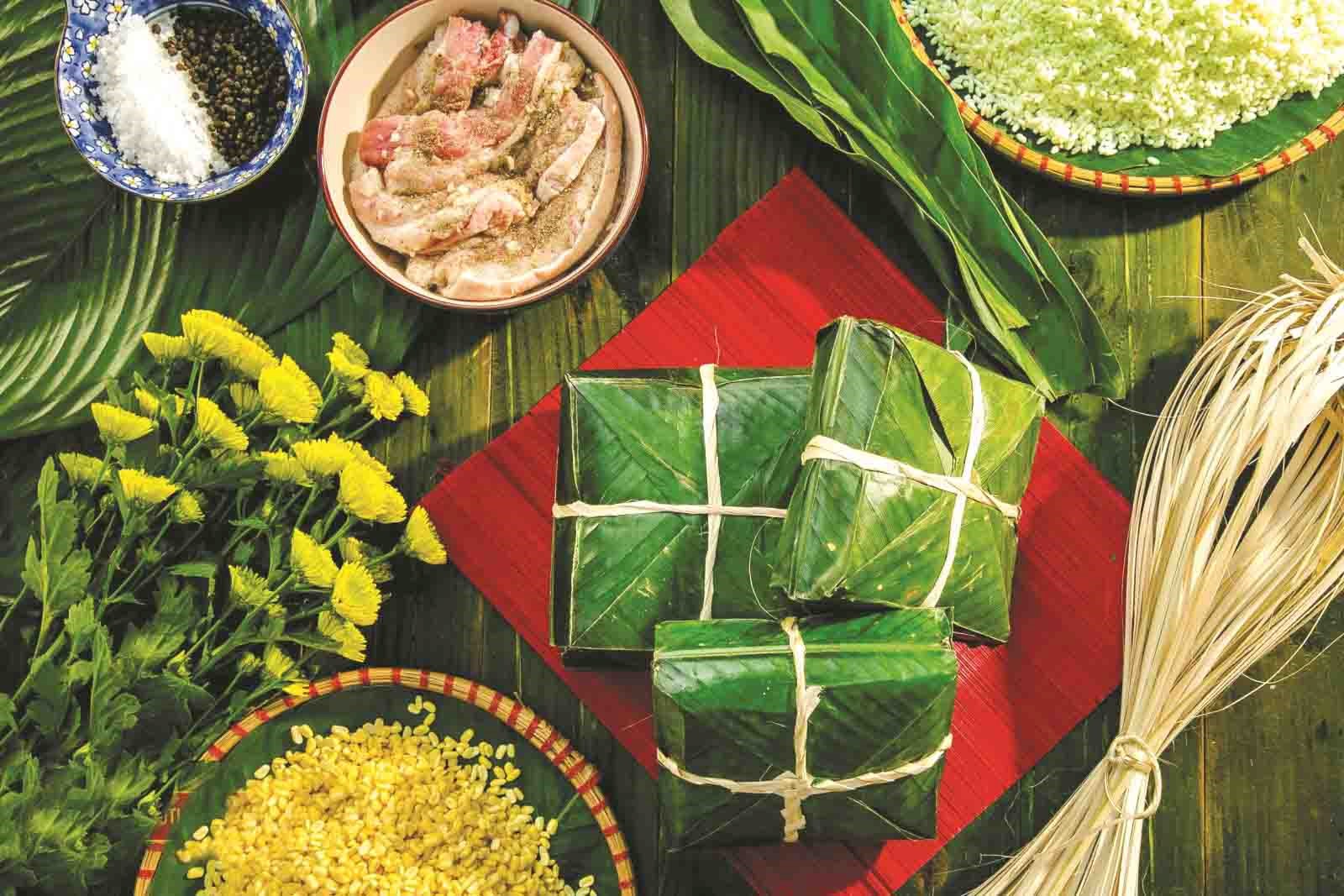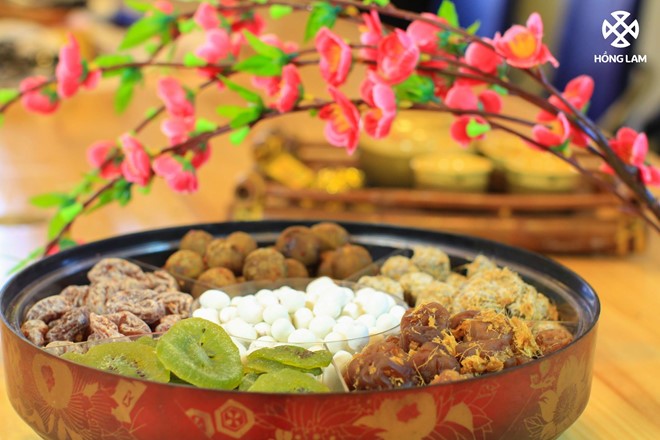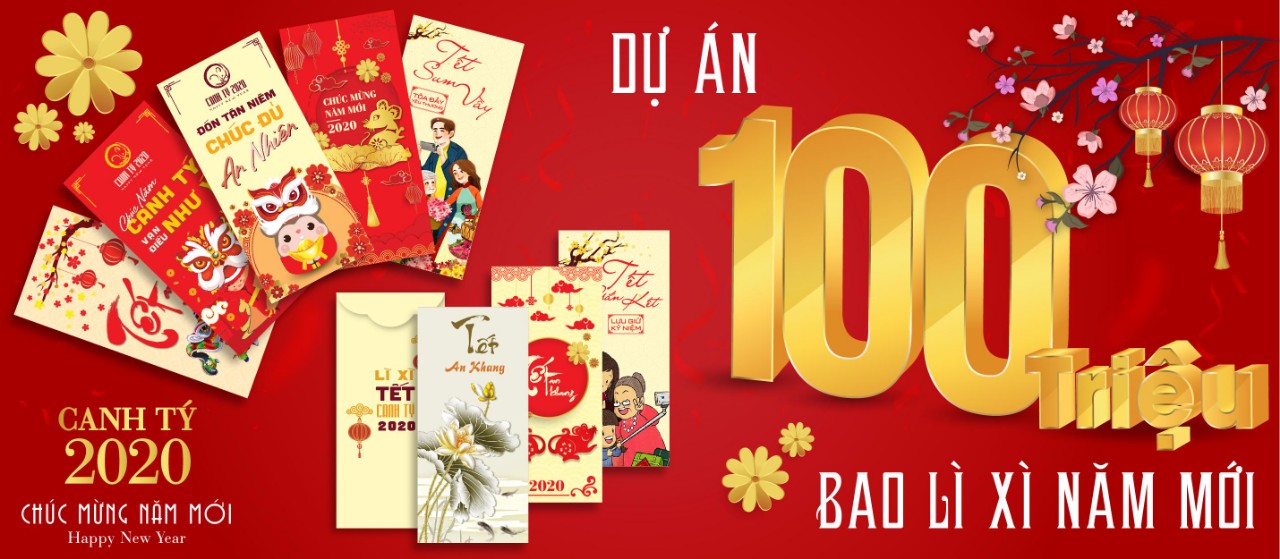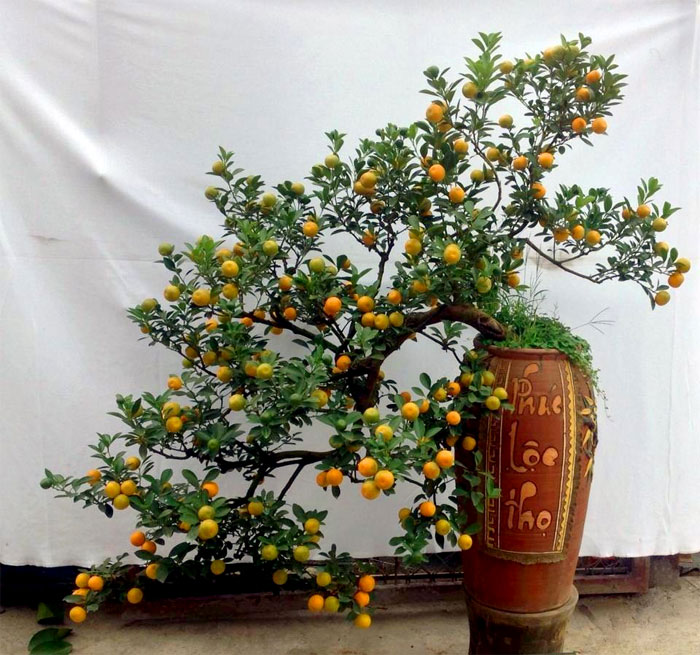How to use some English vocabulary when talking about Lunar New Year
Posted date 20/12/2019
view

Many foreigners coming to Vietnam want to learn about these traditional customs of the Vietnamese people. However, when describing Tet in Vietnam in English, there are many words that Vietnamese people use incorrectly, causing incorrect or incorrect understanding of the information described. After studying the current situation, referring to some articles and talks of some native teachers, in this article the author will mention some common mistakes when talking about Tet Nguyen Dan of Vietnamese people in English, and give the most standard way of speaking about 3 areas: food (FOOD); customs (CUSTOMS) and wishes (WISHES) during Tet.
Many foreigners coming to Vietnam want to learn about these traditional customs of the Vietnamese people . However, when describing Tet in Vietnam in English, there are many words that Vietnamese people use incorrectly, causing incorrect or incorrect understanding of the information described. After studying the current situation, referring to some articles and talks of some native teachers, in this article the author will mention some common mistakes when talking about Tet Nguyen Dan of Vietnamese people in English, and give the most standard way of speaking about 3 areas: food (FOOD); customs (CUSTOMS) and wishes (WISHES) on Tet holiday.
I. Food:
1. Banh chung

Banh chung - a typical dish of Lunar New Year.
When talking about dishes during Tet, we cannot help but mention BANH CHUNG. Most Vietnamese people use the word “Chưng cake” to call this dish. However, this way of calling is not correct because foreigners will imagine a sweet cake made from wheat flour, which is not the case with bánh chưng. We should call it “bánh chung” right away, like Pho (pho), Pizza or Sushi, then describe it further, that is, ‘ a sticky rice cake’ , so foreigners will have a clearer picture. However, they may imagine a sweet sticky rice cake, not a salty cake like the traditional Vietnamese bánh chưng. In English, the word salty can be said in 2 ways: SALTY/ TOO SALTY means too salty, and if you want to say ‘salty’ as opposed to ‘sweet’, the British often use the word SAVORY. In short, we can say:
' During Tet, we make and eat banh chung, which is a savory sticky rice cake'. We can further explain it as: It's a savory sticky rice cake , stuffed with mung beans and pork .
With the type of banh GIÒ and banh DAY we can also explain similarly:
BANH DAY is a savory sticky rice cake which we often eat with sausage - GIO LUA (giò lụa). In English, all kinds of food made from minced meat pressed into a mold and then cooked are called SAUSAGE, for example: sausage, giò, lap xuong... To explain more precisely, we can say:
GIO LUA (giò lụa) is a very smooth pork sausage
2. Apricots
Foreigners often call dried apricots DRIED FRUITS . And because dried apricots also contain sugar, ginger, salt and some other spices, they can be called seasoned dried fruits.

3. Jams and candies
There are many types of jam, the general name is JAM but the specific types have different names, for example, coconut jam and ginger jam are called CANDIED:
CANDY: candy
GINGER CANDY: ginger candy
CANDIED GINGER: candied ginger (a slice of ginger cooked with sugar)
CANDIED COCONUT: coconut jam
II. TET CUSTOMS
1. New Year's Eve custom
On the first day of the Lunar New Year, people often have the habit of giving lucky money to children. In Western countries, there is no custom of giving lucky money on New Year's Day, they only give lucky money on birthdays, so in English there is no vocabulary for this custom of giving lucky money. We just need to remember:
lucky money - lucky money
- Give smb lucky money ( or Give lucky money to smb): Happy birthday to someone
CANDY: candy
GINGER CANDY: ginger candy
CANDIED GINGER: candied ginger (a slice of ginger cooked with sugar)
CANDIED COCONUT: coconut jam
II. TET CUSTOMS
1. New Year's Eve custom
On the first day of the Lunar New Year, people often have the habit of giving lucky money to children. In Western countries, there is no custom of giving lucky money on New Year's Day, they only give lucky money on birthdays, so in English there is no vocabulary for this custom of giving lucky money. We just need to remember:
lucky money - lucky money
- Give smb lucky money ( or Give lucky money to smb): Happy birthday to someone

2. Custom of entering the house first
In Western countries, there is no custom of visiting first person in the house, so there is no short vocabulary for this custom in English. This custom can be explained as follows:
- On the first day of the new year, we invite a guest who we think will bring us good luck .
2. Taboo customs
There are taboos and dos during Tet that have become long-standing customs of Vietnamese people to bring luck and avoid bad luck in the new year.
When we want to say we abstain from eating something, the most natural way to say it is:
“ People often don't eat squid ”
Or we can say it more specifically:
“ People often abstain/ refrain from eating squid”
So, when we want to say something to avoid doing during Tet, we can say:
- People often don't do smth
- People often abstain/ refrain from doing smth
Or we can say it more specifically:
“ People often abstain/ refrain from eating squid”
So, when we want to say something to avoid doing during Tet, we can say:
- People often don't do smth
- People often abstain/ refrain from doing smth
3. Customs of arranging flowers and ornamental plants on Tet holiday
Here are some words about flowers and ornamental plants commonly used during Tet:
Here are some words about flowers and ornamental plants commonly used during Tet:

A kumquat tree : kumquat tree
A peach tree: peach tree
A yellow apricot blossom ( Because in English there is no apricot tree, it is best to call the apricot tree a Mai tree )
A peach tree: peach tree
A yellow apricot blossom ( Because in English there is no apricot tree, it is best to call the apricot tree a Mai tree )
A pot of chrysanthemum / kriˈsænθəməm/ : a pot of chrysanthemum III. Wishes for TET
The simplest way to wish is HAPPY NEW YEAR
Other wishes such as 'Wishing you a healthy, prosperous and successful new year' are rarely used in Western countries, however we can use:
'Wishing you a healthy and successful new year”
And when speaking, we can leave out the word WISHING:
“I hope you have a healthy and successful new year”
>> REGISTER FOR ADMISSION HERE
Faculty of Foreign Languages - Dai Nam University
Register for admission consultation 2025
Dai Nam University offers admissions to
36 academic programs
across a diverse range of disciplines, including Healthcare, Engineering and Technology, Economics and Business, and Social Sciences and Humanities.
Register now to secure
scholarships and tuition support worth up to 55 billion VND
scholarships and tuition support worth up to 55 billion VND

Register now to secure
scholarships and tuition support worth up to 55 billion VND
scholarships and tuition support worth up to 55 billion VND






